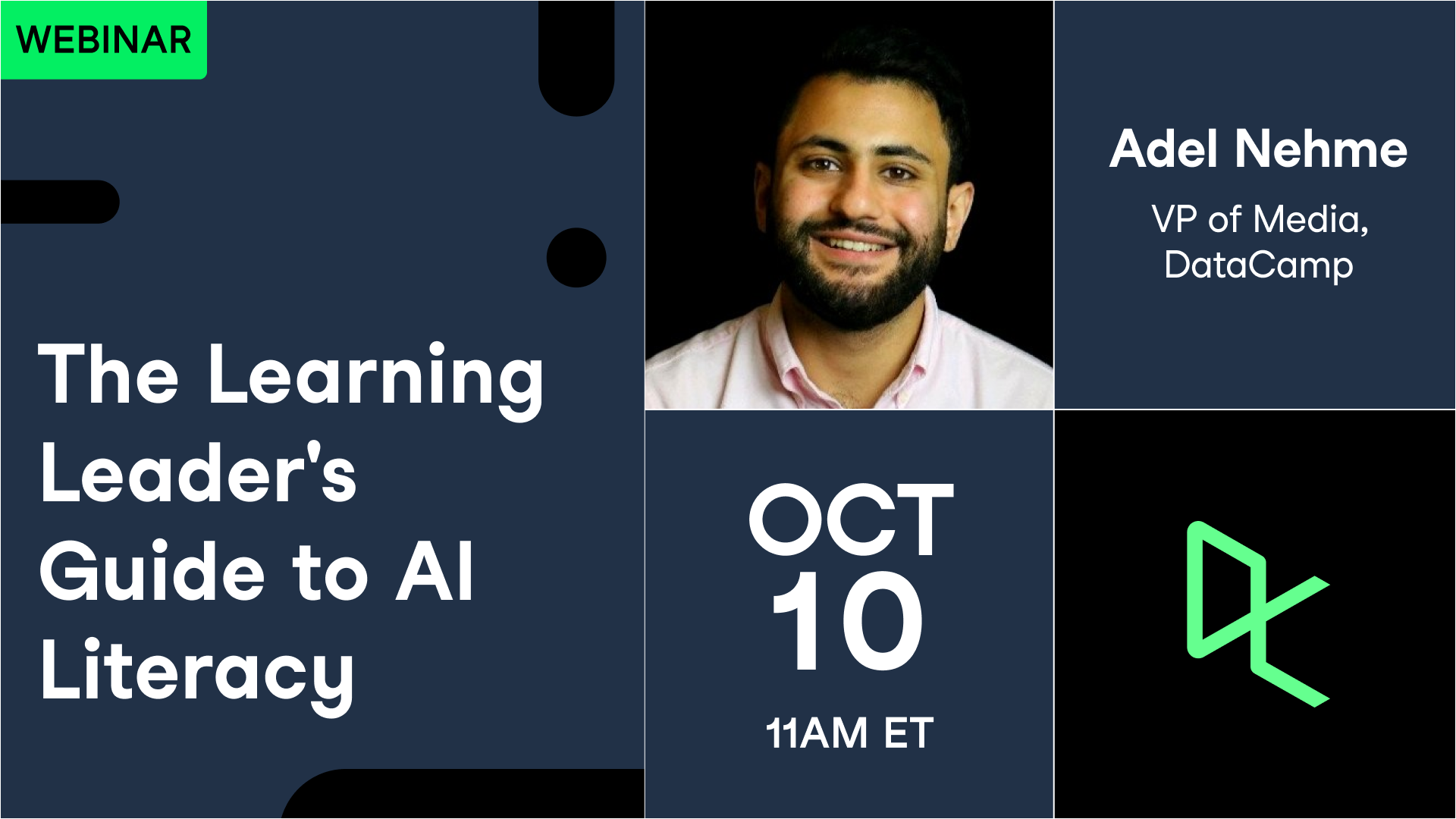Skip to main contentFor Business





Speakers
Training 2 or more people?
Get your team access to the full DataCamp library, with centralized reporting, assignments, projects and moreRelated
white paper
The Learning Leader's Guide to AI Literacy
Find out how learning leaders should be approaching AI literacy within their organization, focusing on the what, why, and how of fostering organization-wide AI literacy.white paper
The Learning Leader's Guide to AI Literacy
Find out how learning leaders should be approaching AI literacy within their organization, focusing on the what, why, and how of fostering organization-wide AI literacy.webinar
Designing An Effective AI Literacy Strategy: A How-to Guide for Leaders
Alex Jaimes, CAIO at Dataminr, and Doug Laney, Innovation Fellow at West Monroe, teach you how to develop a strategy to enable all your employees to become AI literate.webinar
Building Your Organization’s Data & AI Maturity
Adel Nehme, VP of Media at DataCamp, details the path to become a data & AI mature organization.webinar
Designing An Effective AI Literacy Strategy: A How-to Guide for Leaders
Alex Jaimes, CAIO at Dataminr, and Doug Laney, Innovation Fellow at West Monroe, teach you how to develop a strategy to enable all your employees to become AI literate.webinar
Bridging the Generative AI Talent Gap
Adel Nehme, VP of Media, discusses the state of the AI skills gap, introducing a comprehensive framework for upskilling all learning personas within your organization.Join 5000+ companies and 80% of the Fortune 1000 who use DataCamp to upskill their teams.
Loved by thousands of companies

